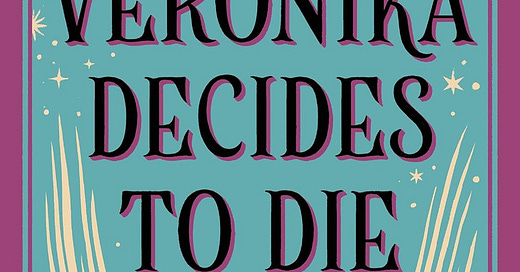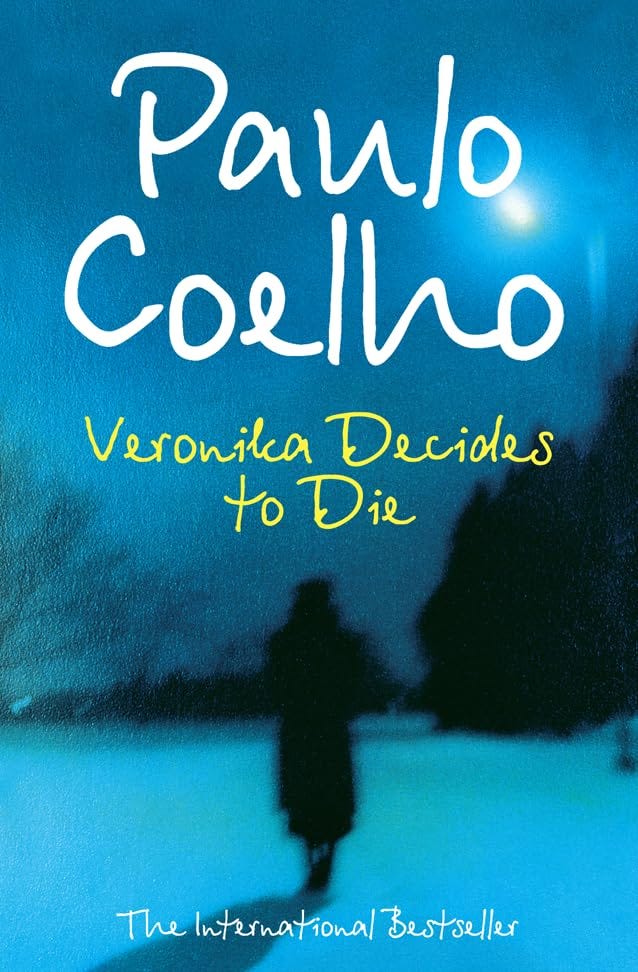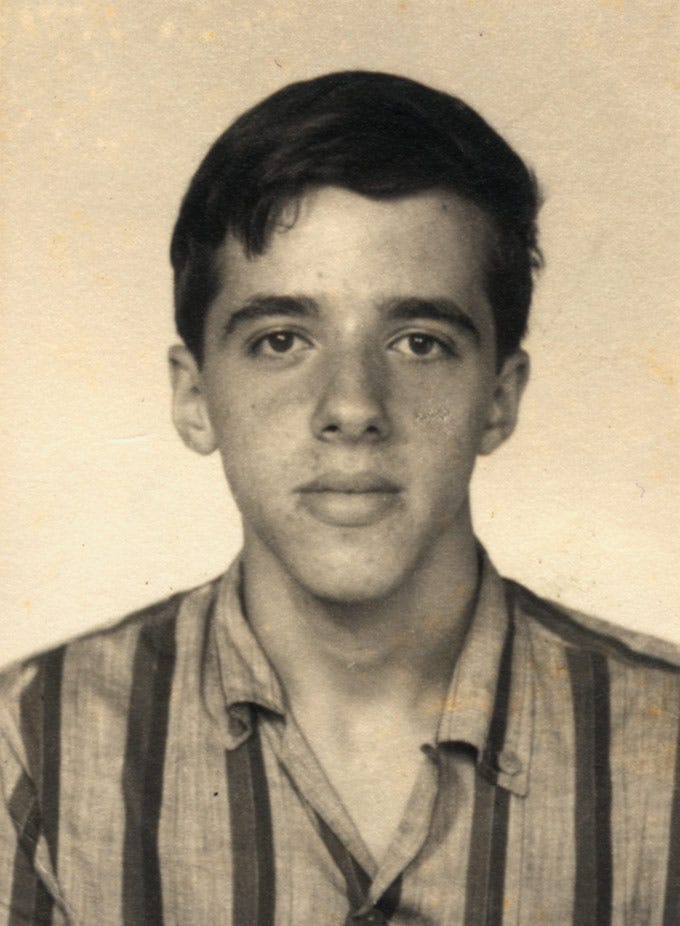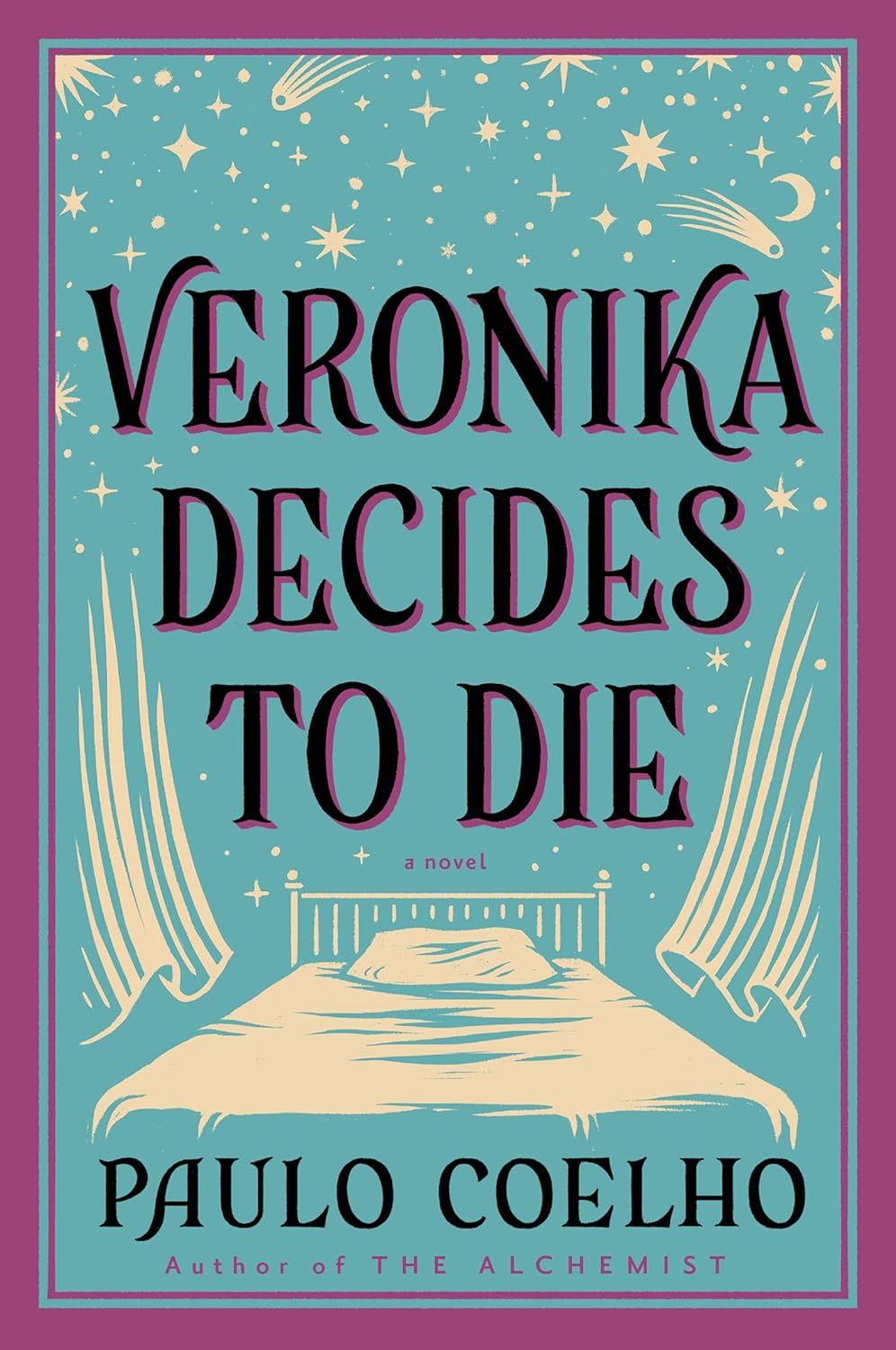This month we’re reading Veronika Decides To Die - which is a novel inspired by real events in Paulo’s life when he was committed to a psychiatric hospital in his late teens. This is a deeply profound, brave, and moving story - full of insights and compassion for the complexity and confusion anyone can experience, and it ends with the hope that even out of inner turmoil a new life can begin.
Plot Summary: (Warning: This book deals with issues around suicide and depression, and caution should be taken when recommending it to vulnerable young adults. For additional guidance please see https://www.samaritans.org/)
Veronika seems to have everything she could wish for. She is young and pretty, has plenty of attractive boyfriends, goes dancing, has a steady job, a loving family. Yet Veronika is not happy; something is lacking in her life. On the morning of November 11th, 1997, she decides to die. She takes an overdose of sleeping pills, only to wake up some time later in Villete, the local hospital. There she is told that although she is alive now her heart is damaged and she has only a few days to live.
This story follows Veronika through these intense days as, to her surprise, she finds herself drawn into the enclosed world of Villete. She begins to notice more, to become interested in the other patients. She starts to see her past relationships much more clearly and understand why she had felt her life had no meaning. In this heightened state, Veronika discovers things she has never really allowed herself to feel before: hatred, fear, curiosity, love — even sexual awakening. Against all odds, she finds she is falling in love, and wanting, if at all possible to live again.
Reading Schedule:
Week One: Aug 1st - Pages 1 to 54
Week Two: Aug 8th - Pages 55 to 102
Week Three: Aug 15th - Pages 103 to 149
Week Four: Aug 22nd - Pages 150 to 191
An introduction from Paulo
This is what Paulo had to say about his ‘new’ book back in 1999.
‘We are all inside the same vibration. The writer is only one more companion on this adventure. What novelties do my books contain? None. What do I share with my readers? My life, my experiences. So a reader in Japan, who possesses a very different culture from mine, tells me, ‘Il already knew that, didn't have it at a conscious level, but I sensed you were talking about me.’ Now with my novel, Veronika Decides to Die, which touches on the themes of madness and suicide, made ten copies of the manuscript and gave them to various people to read. And, much to my surprise, each and every one of them had had a brush with suicide or madness in their families. I got a fax from England saying, ‘I received your book. I loved it. think the only time in my life when felt far from God was when | tried to kill myself, but I survived.' It was signed Amelia. Well, Amelia is a woman who's been working with me for over twenty years, and I had absolutely no idea she’d ever attempted suicide.
‘I studied Law, but only because I was obliged to by my father. I didn't finish. Until finishing secondary school and the entrance exam for university, I had my rebelliousness totally under control, oppressed by my parents, society, and the general atmosphere. But when I went off the rails, I exploded completely. That happened when I started university, but before that there was a point when I couldn't get anywhere with my studies, I spent three years in the last year of secondary school, I didn't finish, I couldn't get out of there until at last my family paid for me to pass the year and I passed just like that.
‘My parents had me committed three times to a psychiatric hospital because I kept escaping. Since that asylum still exists, recently, I tried to find out what reasons they used to get me locked up with the insane. And I was surprised by the banality of the motivations. In the medical report, it says I was irritable, I harassed people politically, I was doing steadily worse in school, my mother thought I had sexual problems, I hadn't matured sufficiently for my age, and when I wanted something I tried to get it by every possible means, which revealed increasingly radical and extremist attitudes. I was 17 years old.
‘I wrote poetry in the asylum, but I ended up escaping because I was very aware I wasn't mad; what I wanted was to live everything to the fullest, do everything I liked. Some people believe I was put in there because of drugs. Not at all. I hadn't even tried any drugs at that point.
‘The fact is, the majority of my books, although they're literary narratives, are not fiction. They are actual things I've experienced. The same holds true with Veronika Decides to Die. It's nothing more than the fictionalized experience of the terrible story I’ve told you, of the three times I was committed to the asylum.’*







